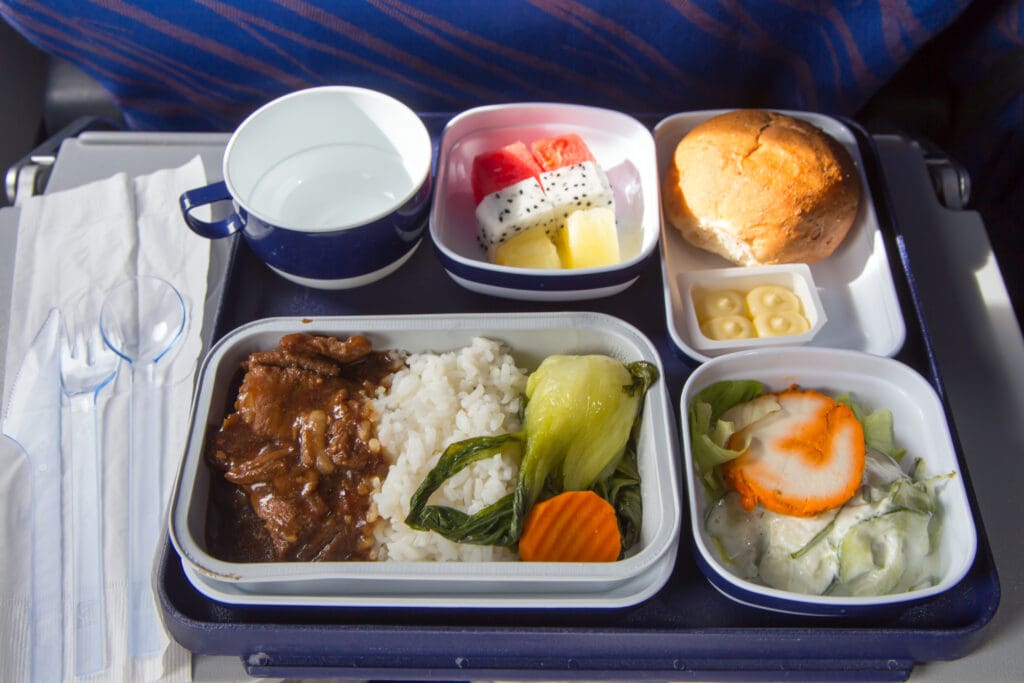IATA has released preliminary findings from cabin waste audit trials, indicating that the aviation industry generates over 3.6 million tonnes of cabin and catering waste annually.
The Cabin Waste Composition Audit, conducted on 25 short, medium, and long-haul flights at Singapore’s Changi Airport in November 2023 and April 2024, revealed that food and beverage waste constitutes 65% of all cabin waste, with untouched meals comprising 18% of the total waste.
Airlines are increasingly targeting inflight food waste reduction. For instance, Lufthansa Group carriers offer fresh food items at a discount on the last flights of each day. Additionally, technology that allows passengers to pre-order meals helps airlines better predict meal requirements. KLM recently announced the use of AI to determine the number of meals needed per flight.
IATA is partnering with the Aviation Sustainability Forum (ASF) to launch a standardised Cabin Waste Composition Auditing Platform later this year. This initiative aims to “guide the airline industry and policymakers in their efforts to reduce waste levels and improve circularity by identifying opportunities for reuse and recycling.”
Marie Owens Thomsen, IATA’s senior vice president of sustainability and chief economist, commented, “Managing and reducing waste is an important component of aviation’s overall sustainability. Obtaining standardised and comparable data on the composition and quantity of waste from flights will help the industry reduce the waste it generates. Better data will also aid policymakers in harmonising regulations, optimising the industry’s ability to sort, recycle, and safely reuse unavoidable waste. Collaborating with ASF on this audit programme is a significant step forward in enhancing the sector’s circularity.”


